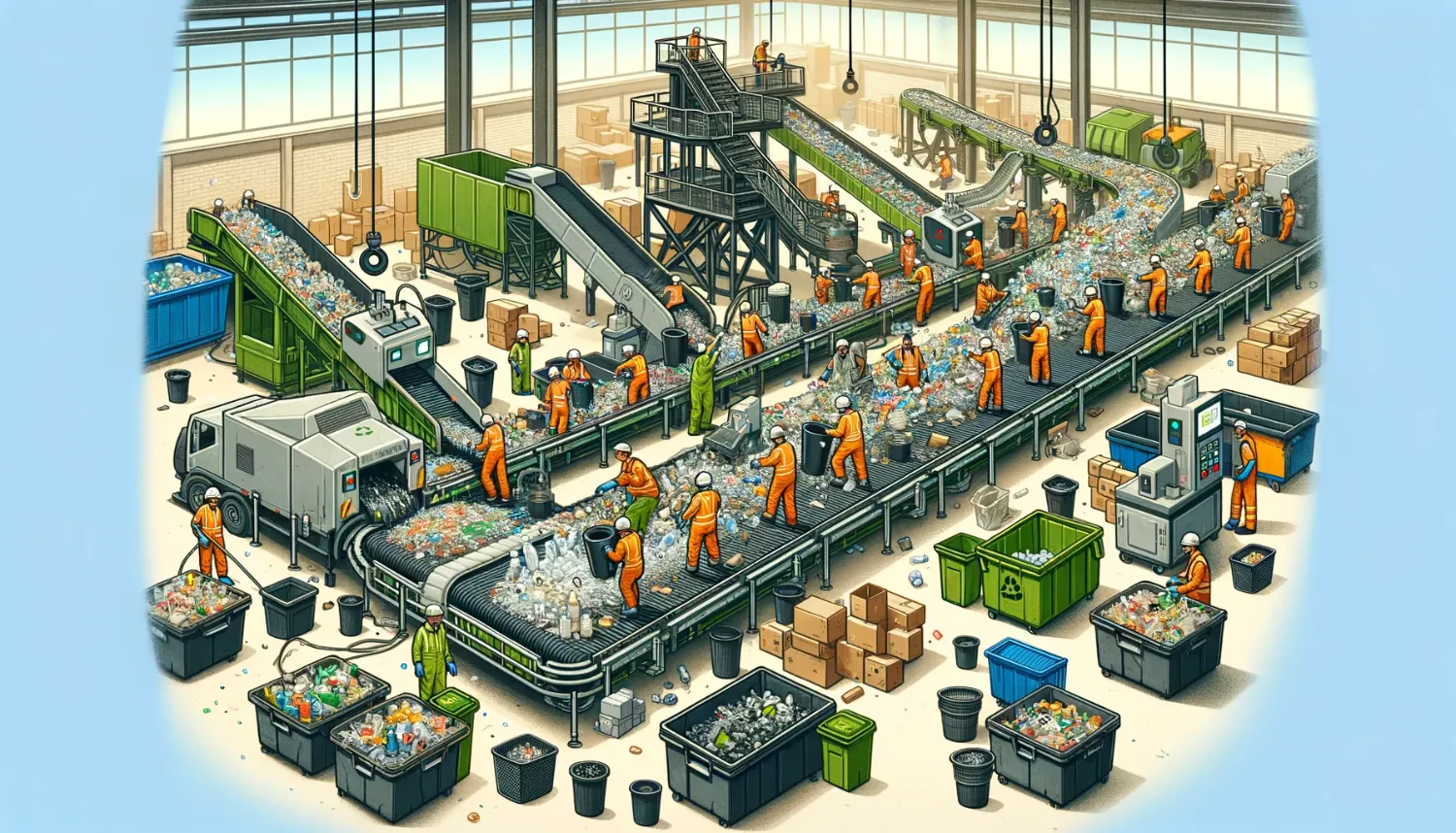Introduction
In an era where environmental sustainability is paramount, managing Municipal Solid Waste (MSW) effectively has become a global priority. MSW sorting lines stand at the forefront of this environmental endeavor, transforming the way we handle waste.
A Municipal Solid Waste (MSW) sorting line is a facility used for separating and processing waste collected from residential, commercial, and industrial sources. The main goal of an MSW sorting line is to segregate different types of waste materials for recycling, recovery, and proper disposal. The process typically involves several steps:
- Reception and Storage: Waste is received at the facility and temporarily stored.
- Pre-sorting: Initial sorting is done to remove large items and contaminants that could damage the sorting equipment.
- Screening and Mechanical Sorting: Various mechanical processes like trommels, screens, and conveyors are used to separate waste based on size and physical characteristics.
- Manual Sorting: Workers manually sort the waste to further segregate recyclable materials like paper, plastics, metals, and glass.
- Magnetic and Eddy Current Separators: These are used to extract ferrous and non-ferrous metals.
- Optical Sorting: Advanced technologies like optical sorters can be used to further refine the sorting process, especially for plastics.
- Baling and Packaging: Recyclable materials are compacted into bales for easy transportation.
- Waste to Energy: Organic waste can be processed in anaerobic digesters or incinerators to produce energy.
- Disposal: Non-recyclable and residual waste is sent to landfills or incinerators.

Environmental and Economic Benefits
The implementation of MSW sorting lines significantly impacts environmental sustainability. By enhancing recycling rates and reducing landfill usage, these facilities contribute to lower greenhouse gas emissions and resource conservation. Economically, they create job opportunities and foster a circular economy, where waste is not just discarded but reused and repurposed.
Challenges and Future Directions
Despite their benefits, MSW sorting lines face challenges such as high operational costs, technological complexities, and the need for continuous innovation to handle diverse waste streams. Future advancements may include the integration of AI and machine learning for more efficient sorting and the development of more sustainable waste-to-energy technologies.
Conclusion
MSW sorting lines are pivotal in the quest for sustainable waste management. As we advance, these facilities will continue to evolve, playing a critical role in environmental conservation and resource management. It is through such innovations that we can hope to achieve a more sustainable and waste-resilient future.
INQUIRIES
To get the latest prices and lead times, send us a message using the form below.
[contact-form-7 id=”c9499fe” title=”Contact form 2″]



